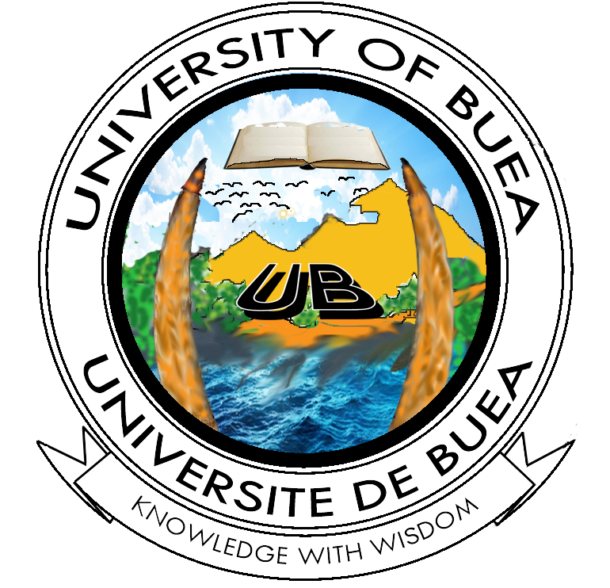Duration: 3 years
Fee Paying: No
Admission Requirements
In addition to University and Faculty requirements, students who wish to enroll for a BSc in Mathematics should have obtained at least a C grade in Mathematics at the GCE A’ Level (or equivalent) or a special recommendation of the Department.
Objectives
To provide students with tools for mathematical techniques and thinking, and to expose them to basic mathematical processes and principles in both pure and applied mathematics.
Graduation Requirements
A student is required to earn at least 180 credits to be able to graduate with a Bachelor’s degree in Mathematics. The 180 credits are distributed as follows:
- Compulsory university credits = 14
- Compulsory Departmental credits =108
- Credits for Elective Courses = 58
The elective courses are determined partly by the Department and partly by the student to reflect the student’s interest and professional orientation. A student who wishes to graduate with a minor component to his/her major is expected to earn at least36 credits from designated courses in an approved structured minor programme as part of the 58 credits allocated for elective courses. Preferred minors for mathematics majors are Computer Science, Accountancy, Management, Curriculum studies, etc.
Skills Acquired
At the end of the programme the student is expected to be equipped with tools for mathematical techniques and thinking. The student should have mastered basic mathematical principles and should be able to carry out mathematical instructions in both pure and applied mathematics.
Employment Opportunities
A student with a good B.Sc. degree can do research in mathematics or related fields. However, graduates must have gained sufficient skills to be able to acquire employment as secondary school teachers, in the sector of information technology, in the banking and insurance sector, etc. Mathematical sciences are, remarkably, permeating virtually every aspect of social, commercial, industrial, recreational and sporting life. In addition to working as a professional mathematician, computer scientist or statistician, a graduate can equally develop a management career within one of a wide range of fields. Here, their intellectual training, combined with mathematical and modeling expertise, will provide a substantive asset in the modern world of science and technology.
Courses
Compulsory Courses
- BCH202: Biophysical Chemistry and Bioenergetics
- BCH301: Structural Biochemistry I
- BCH302: Metabolic Biochemistry I
- BCH303: Structural Biochemistry II
- BCH310: Genetics
- BCH401: Enzymology
- BCH404: Molecular Biology
- BCH405: Metabolic Biochemistry II
- BCH412: Introduction to Biotechnology and Bioinformatics
- BIO201: Cell biology
- BIO401: Biometry and Research methods
- CHM201: General Chemistry
- CHM244: General Organic Chemistry
- CHM343: Chemistry of Organic Compounds
- MAT211: Mathematical Methods
- MCB301: General Microbiology
- MCB402: Immunology
- PHY220: GeneralPHYsics
Elective Courses
- BCH311: Tissue and Organ Biochemistry
- BCH312: Nutritional Biochemistry
- BCH409: Supra-Molecular Assembles
- BCH410: Biochemical Methods II
- BCH414: Biochemical Pharmacology
- BCH416: Clinical Chemistry
- BCH498: Research Project in Biochemistry
- BIO301: General Ecology and Conservation
- BOT201: Lower Plants
- BOT202: Higher Plants
- BOT308: Principles of Taxonomy andPHYtography
- BOT401: Plant Anatomy and Histology
- BOT412: Principles and Methods in PlantPHYsiology
- CHM312: Analytical Methods in Chemistry
- CHM325: Inorganic Chemistry
- CHM402: Chemistry and the Environment
- CHM438: Chemical Thermodynamics
- CHM441: Organic Synthesis and Reaction Mechanisms
- MLT201: Human Biology - Anatomy and physiology
- MLT202: Human Pathology
- MLT301: Haematology
- MLT302: Endocrinology
- MLT401: Clinical Biochemistry and Analytical Chemistry
- MLT402: Basic Pharmacology and Pharmacological Biochemistry
- ZOO201: Invertebrate Zoology
- ZOO202: Vertebrate Zoology
- ZOO302: AnimalPHYsiology
- ZOO402: Animal Behaviour and Evolution
- ZOO405: General Parasitology
Language Requirements
- ENG101: Use of English I
- ENG102: Use of English II
- FRE101: Functional French I
- FRE102: Functional French II


